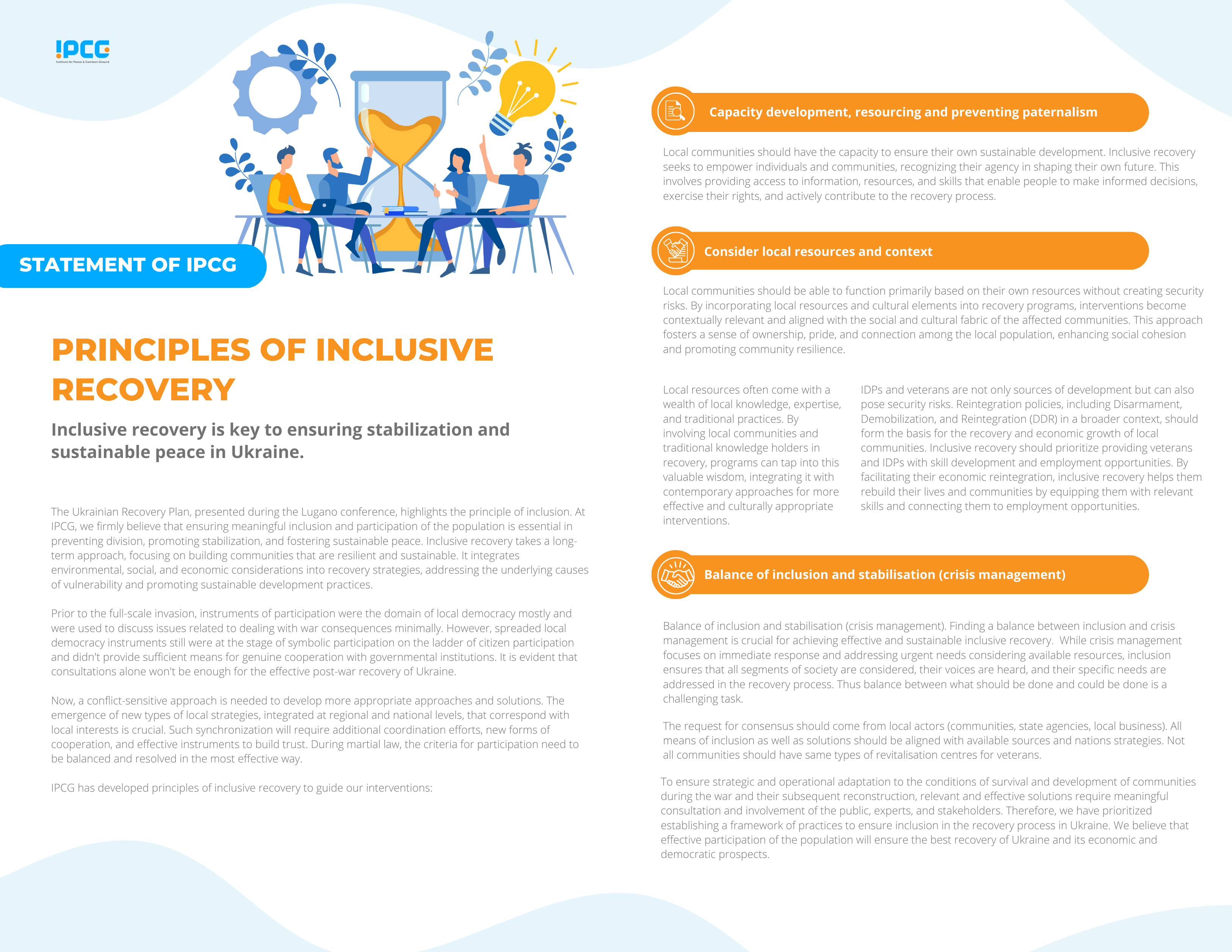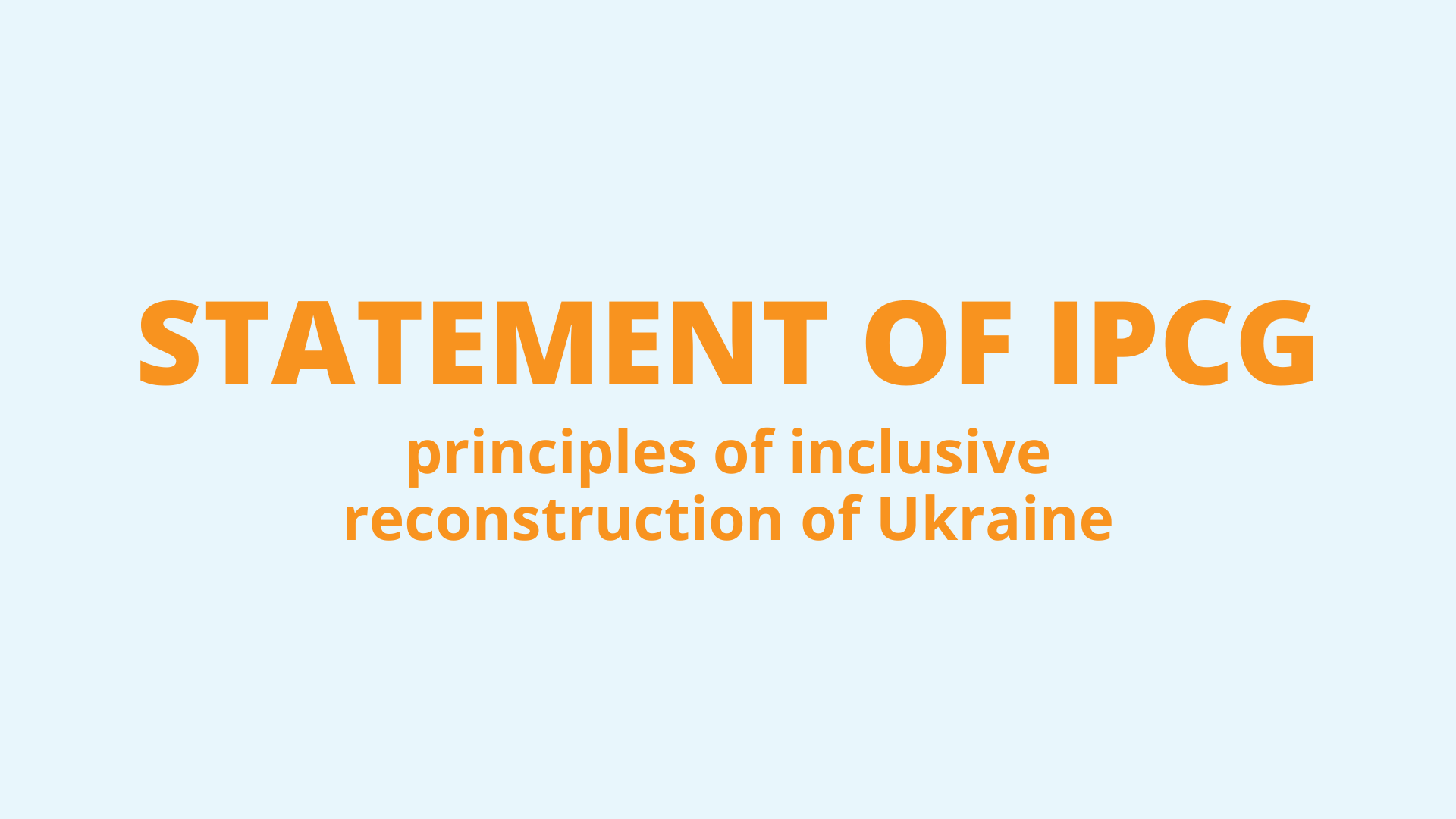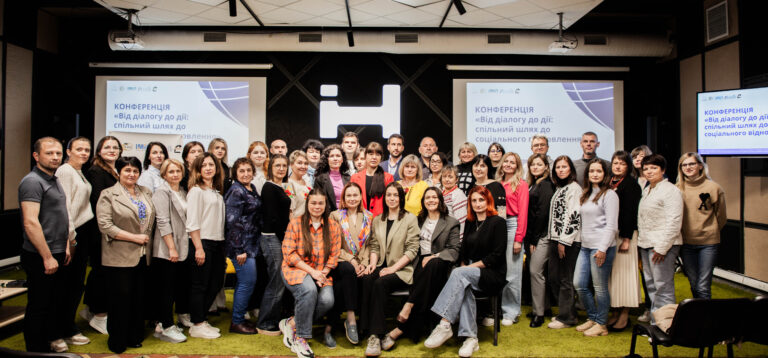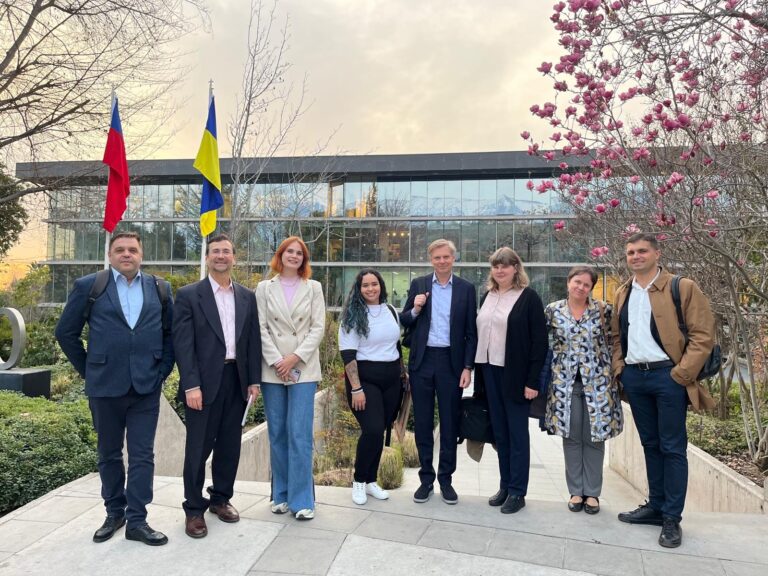The Ukrainian Recovery Plan, presented during the Lugano conference, highlights the principle of inclusion. At IPCG, we firmly believe that ensuring meaningful inclusion and participation of the population is essential in preventing division, promoting stabilization, and fostering sustainable peace. Inclusive recovery takes a long-term approach, focusing on building communities that are resilient and sustainable. It integrates environmental, social, and economic considerations into recovery strategies, addressing the underlying causes of vulnerability and promoting sustainable development practices.
Prior to the full-scale invasion, instruments of participation were the domain of local democracy mostly and were used to discuss issues related to dealing with war consequences minimally. However, spreaded local democracy instruments still were at the stage of symbolic participation on the ladder of citizen participation and didn’t provide sufficient means for genuine cooperation with governmental institutions. It is evident that consultations alone won’t be enough for the effective post-war recovery of Ukraine.
Now, a conflict-sensitive approach is needed to develop more appropriate approaches and solutions. The emergence of new types of local strategies, integrated at regional and national levels, that correspond with local interests is crucial. Such synchronization will require additional coordination efforts, new forms of cooperation, and effective instruments to build trust. During martial law, the criteria for participation need to be balanced and resolved in the most effective way.
IPCG has developed principles of inclusive recovery to guide our interventions:
Principles of inclusive recovery:
- Capacity development, resourcing and preventing paternalism: Local communities should have the capacity to ensure their own sustainable development. Inclusive recovery seeks to empower individuals and communities, recognizing their agency in shaping their own future. This involves providing access to information, resources, and skills that enable people to make informed decisions, exercise their rights, and actively contribute to the recovery process.
- Consider local resources and context: Local communities should be able to function primarily based on their own resources without creating security risks. By incorporating local resources and cultural elements into recovery programs, interventions become contextually relevant and aligned with the social and cultural fabric of the affected communities. This approach fosters a sense of ownership, pride, and connection among the local population, enhancing social cohesion and promoting community resilience.
- Local resources often come with a wealth of local knowledge, expertise, and traditional practices. By involving local communities and traditional knowledge holders in recovery, programs can tap into this valuable wisdom, integrating it with contemporary approaches for more effective and culturally appropriate interventions.
- IDPs and veterans are not only sources of development but can also pose security risks. Reintegration policies, including Disarmament, Demobilization, and Reintegration (DDR) in a broader context, should form the basis for the recovery and economic growth of local communities. Inclusive recovery should prioritize providing veterans and IDPs with skill development and employment opportunities. This may involve vocational training programs, job placement services, entrepreneurship support, and initiatives aimed at fostering their economic self-reliance. By facilitating their economic reintegration, inclusive recovery helps them rebuild their lives and communities by equipping them with relevant skills and connecting them to employment opportunities.
- Balance of inclusion and stabilisation (crisis management). Finding a balance between inclusion and crisis management is crucial for achieving effective and sustainable inclusive recovery.
- While crisis management focuses on immediate response and addressing urgent needs considering available resources, inclusion ensures that all segments of society are considered, their voices are heard, and their specific needs are addressed in the recovery process. Thus balance between what should be done and could be done is a challenging task.
- The request for consensus should come from local actors (communities, state agencies, local business). All means of inclusion as well as solutions should be aligned with available sources and nations strategies. Not all communities should have same types of revitalisation centres for veterans.
To ensure strategic and operational adaptation to the conditions of survival and development of communities during the war and their subsequent reconstruction, relevant and effective solutions require meaningful consultation and involvement of the public, experts, and stakeholders. Therefore, we have prioritized establishing a framework of practices to ensure inclusion in the recovery process in Ukraine. We believe that effective participation of the population will ensure the best recovery of Ukraine and its economic and democratic prospects.






